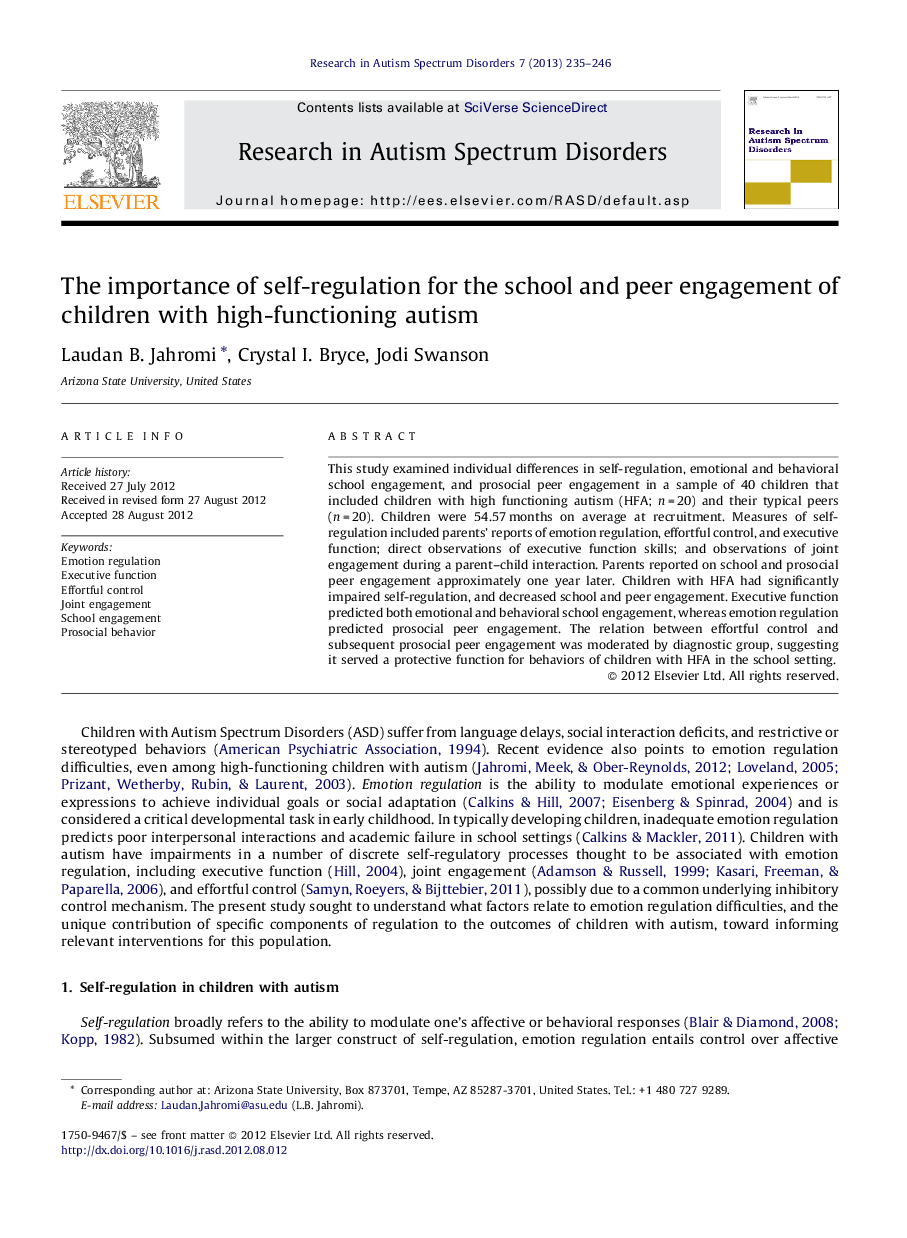| Article ID | Journal | Published Year | Pages | File Type |
|---|---|---|---|---|
| 370485 | Research in Autism Spectrum Disorders | 2013 | 12 Pages |
This study examined individual differences in self-regulation, emotional and behavioral school engagement, and prosocial peer engagement in a sample of 40 children that included children with high functioning autism (HFA; n = 20) and their typical peers (n = 20). Children were 54.57 months on average at recruitment. Measures of self-regulation included parents’ reports of emotion regulation, effortful control, and executive function; direct observations of executive function skills; and observations of joint engagement during a parent–child interaction. Parents reported on school and prosocial peer engagement approximately one year later. Children with HFA had significantly impaired self-regulation, and decreased school and peer engagement. Executive function predicted both emotional and behavioral school engagement, whereas emotion regulation predicted prosocial peer engagement. The relation between effortful control and subsequent prosocial peer engagement was moderated by diagnostic group, suggesting it served a protective function for behaviors of children with HFA in the school setting.
► We examine multiple components self-regulation in children with autism and typical peers. ► We identify self-regulatory predictors of children's school and peer engagement. ► Executive function predicts children's emotional and behavioral school engagement. ► Emotion regulation predicts children's prosocial peer engagement. ► Effortful control promotes prosocial peer engagement for children with autism.
